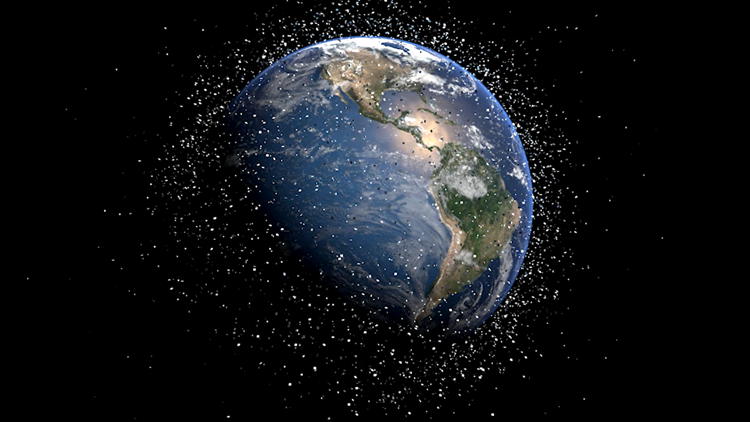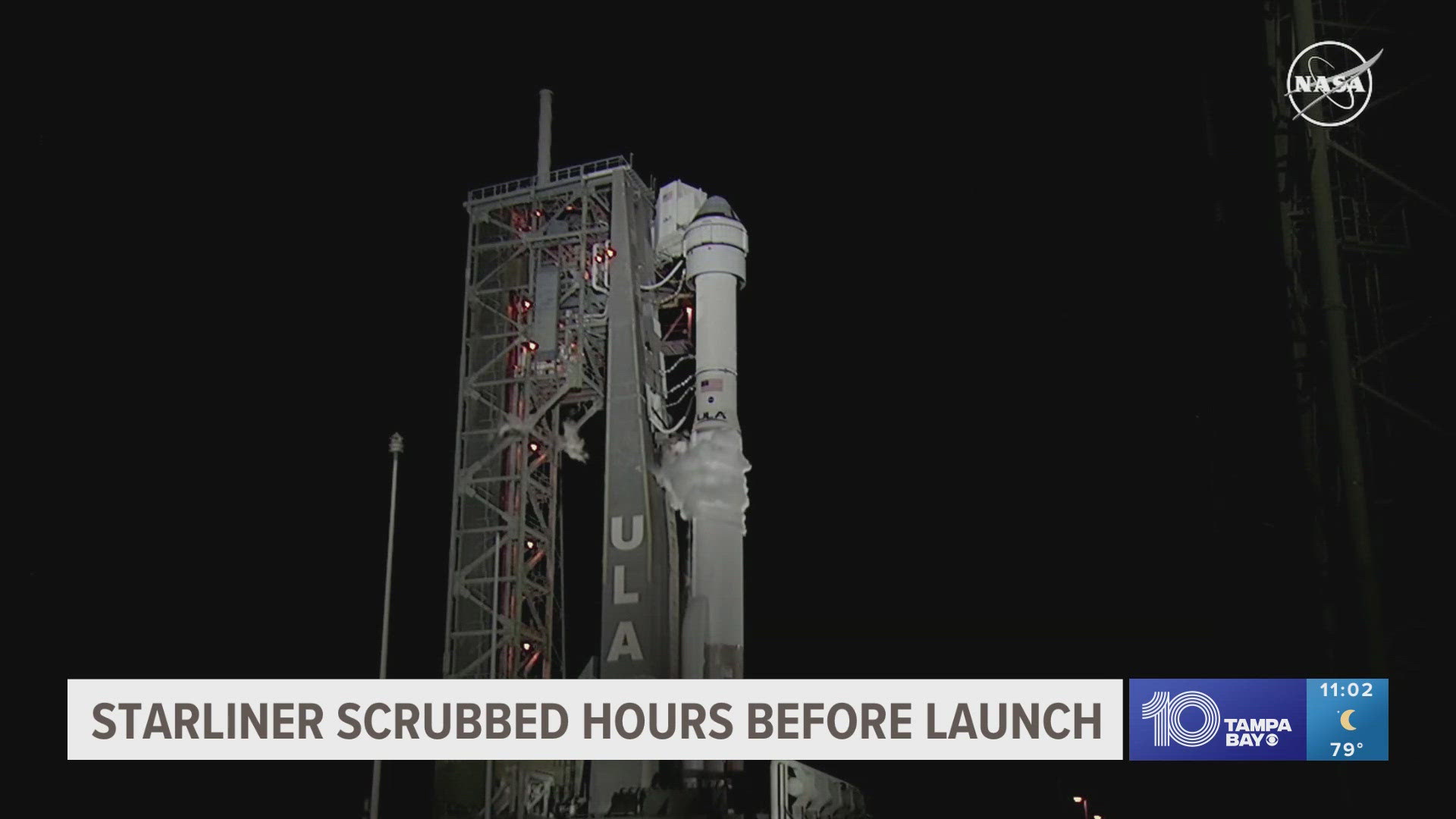TAMPA, Fla. — It's beginning to get a bit crowded in low Earth orbit as humans continue to litter the limited amount of space available with debris.
The problem isn't anything new, but with the growing commodity of space and what feels like a slew of new companies getting funding for launches, there's not much room left in an already heavily trafficked area.
Millions of pieces of debris are tracked as they orbit Earth, according to NASA's last reported calculation. The objects can travel up to a speed of 17,500 mph which can damage both satellites and spacecraft.
"The rising population of space debris increases the potential danger to all space vehicles, but especially to the International Space Station, space shuttles and other spacecraft with humans aboard," NASA has said in the past.
Astronaut Mike Hopkins told CBS News that the Air Force and Space Force are constantly monitoring debris in space on the chance that one is projected to get a little too close for comfort to the International Space Station.
"It is [constantly] something that we're always worrying about up here, and something that we have to be mindful of," he told the outlet.
It's an issue that's reared its head over the years, including in 2015 when ISS flight controllers conducted a "pre-determined avoidance maneuver" to steer clear of a fragment of a spent Minotaur rocket.
In 2020, then NASA Administrator, Jim Bridenstine called out the issue of space debris, saying things were only getting worse.
"The @Space_Station has maneuvered 3 times in 2020 to avoid debris. In the last 2 weeks, there have been 3 high concern potential conjunctions," he tweeted.
But there isn't always time for the orbiting laboratory to maneuver out of the way as was apparent earlier this year when a piece of space junk punctured a tiny hole the size of a pencil eraser into one for the International Space Station's robotic arms.
In instances like these astronaut Peggy Whitson told CBS News that "you have to take shelter, get in basically your rescue vehicle, and be prepared to depart the station."
According to Steve Stich, NASA's Commercial Crew Program manager, crews will use their capsules like "lifeboats" which are able to be powered up within minutes.
Astronaut suits are also kept inside each crew's capsule during the duration of their stay at the ISS, allowing for convenient and quick suiting up in case of any emergency.
So how do we fix the issue before it's too late? Well, that depends on both who you ask and if all global parties are willing to cooperate.
In March, NASA and SpaceX took a step toward making space safer in terms of navigating the crowded field of spacecraft, satellites and debris currently orbiting the planet we call home.
The two signed a joint agreement that allows for a deeper level of coordination, cooperation and data sharing between the two parties. The agreement's main focus is on conjunction and launch collision avoidance between NASA's spacecraft and the ever-growing constellation of Starlink satellites.
On the cleanup efforts side of things, as you can imagine, there isn't a crew that can remove the amount of debris occupying the space just above the Earth's atmosphere on a daily basis.
But that doesn't mean some agencies and companies aren't trying.
There's RemoveDEBRIS, a satellite that was launched into space in 2018 to perform a series of experiments on how to capture space debris. The European Space Agency also recommends several actions to fight the ever-growing space junk problem, like visiting "high object density" areas to remove up to 10 objects per year.
While change won't happen overnight, there is something that can — our mindset.
"In a way, this is sort of an age-old, human story," said CBS Sunday Morning Correspondent David Pogue. "Whether it's us dumping plastic, or us dumping chemicals, or us burning fossil fuels, we don't really think through the detritus that we leave behind."
If you ever want to track all the "stuff in space" you can do so through an interactive map here.



